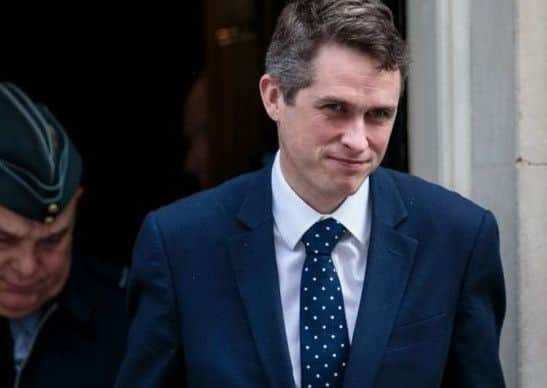Gavin Williamson: The world has '˜entered a new era of warfare'
Gavin Williamson called the attack on Sergei and Yulia Skripal in Salisbury a “cold-blooded chemical attack” and said the Kremlin’s response has been to “unleash a tidal wave of smears, lies and mockery”.
The UK expelled 23 Russian diplomats in the wake of the poisoning with its allies also calling on embassy staff to leave, and Russia taking similar measures in return.
Advertisement
Hide AdAdvertisement
Hide AdWriting in the Sunday Telegraph, Mr Williamson said the world was becoming a “darker, more dangerous place” citing conflicts in Syria and Yemen and tensions with North Korea.


He added: “Then there is President Putin. He is using more hybrid capabilities to subvert, undermine, and influence countries around the world.
“If we were in any doubt of the danger posed by Moscow, we only have to look at events in Salisbury, where our Armed Forces, including the RAF, have been responding to a cold-blooded chemical attack.
“This was an illegal and contemptuous use of force against our country by the Russian State, endangering innocent lives.”
It follows the Russian Embassy issuing a demand to the British authorities to know why it has been “denied consular access” to the Skripals.


The embassy published a list of 14 questions on Saturday over the poisoning of Sergei and Yulia Skripal in Salisbury.
The first question on the list read: “Why has Russia been denied consular access to the two Russian nationals, Sergei and Yulia Skripal, that have become crime victims in the British territory?”
It also included demands to know what treatment the pair were given and queried France’s “involvement” in the investigation and asked if the Novichok could have been “researched, developed or produced in the UK”.
Advertisement
Hide AdAdvertisement
Hide AdThe Russian Embassy had said it “insists” on the right to see Ms Skripal, 33, after it emerged she was improving rapidly.
An FCO spokeswoman said: “We are considering requests for consular access in line with our obligations under international and domestic law, including the rights and wishes of Yulia Skripal.”
Mr Skripal remains in a critical but stable condition in hospital.